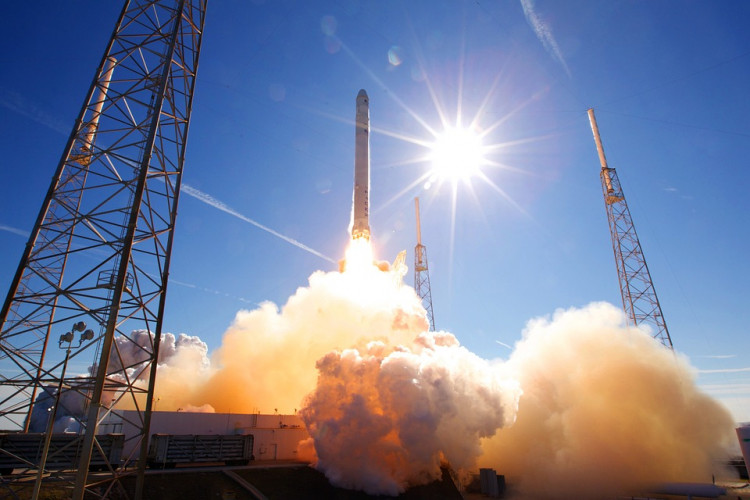A group of Israeli scientists from the company SpaceIL is set to launch a lunar lander to the moon this week. If this happens it will be known as the first mission to be privately funded. The mission is in partnership with Elon Musk's Space X.
The lunar lander from the company SpaceIL, namely Beresheet comes from the Hebrew word Genesis, weighs approximately 150 kilograms. It is scheduled to lunch on Friday at 8:45 pm Eastern time from Cape Canaveral Florida. It will be driven by Space X's Falcon 9 rocket. Once successful, it will take several weeks for the robotic lander to measure the moon's magnetic field, and help the scientists understand how it is formed.
Estimated after the SpaceX Falcon 9 will take off, 30 minutes after the Beresheet will be separated and run by solar power. It can only carry two useful payloads. One is the magnetometer, to measure the magnetic field of the moon. The instrument came from the Weizmann Institute of Science located in Israel. The other one is a suite consisting of five cameras including a selfie camera and a panoramic camera that can snap images on the surface.
As follows, the SpaceIL Program Deputy Manager Eran Shmidt said that "We have one camera pointing at one of the spacecraft's legs, which should capture [an image] of one of the legs of the landing gear. There will be a plaque, our logo, and another surprise that we are not saying now. We will take images before landing and after landing," according to Forbes.
In line, not only SpaceX joined venture with the Beresheet, to send the data back to Earth, SpaceIL also works together with NASA's Deep Space Network and the Swedish Space Corporation. The agreement with NASA was signed last 2018. The Israel Space Agency helped bridge the two said agencies.
However, Beresheet's time on the surface will be short. As the lunar lander does not have a thermal control system to fight off the intense heat found on the moon's surface during the lunar daytime. If the landing will take place on April 11 the lander is expected to have a lifespan of just three days before the temperature 212°F (100°C) it will then render the lander to be inoperative.
In addition, according to Business Insider, SpaceIL said that the spacecraft will use different sensors to measure the height and location in relation to the surface of the moon. "The ground team will not be able to intervene during the landing process." During its descent and after landing, the lander is supposed to record video and panoramic photos while beaming footage to a control room at Israel Aerospace Industries in Yehud. "It will be possible to operate all the spacecraft's systems from this control room."
Thus, if the mission will be successful or not, this effort will mark the beginning of Israel and the country's space industry. Also, if the lunar mission will be successful, Israel will become the fourth nation that landed on the moon's surface. Other countries such as Europe, India, and Japan have crashed exploration on to the lunar surface but not yet set down any robots.






